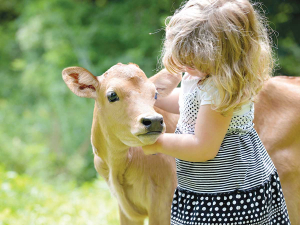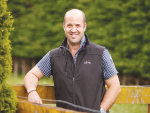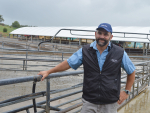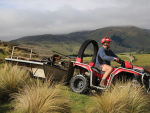Genomic testing company, STgenetics (STg) is a relatively new player in New Zealand – but claims it has made the single biggest contribution to dairy breeding since artificial insemination – with an ongoing greater purpose few understand.
STg was born in Texas when two self-made businessmen and friends, Juan Moreno (originally from Columbia) and Maurice Rosenstein (who has since retired) shifted sexsorted semen from an expensive novelty into an affordable industry staple. Judiciously – for their business – they patented the technology.
The two disruptive marketers started with two sex-sorting machines working around the clock. Today, STg has around 1000 machines operating in 50 laboratories across the globe. It employs 1800 people. Approximately 23 of them hold PhDs.
Its team includes a Kiwi – Dr John Sharpe (based in Hamilton), who is a director at STg New Zealand, and the executive vice president of Flow Cytometry at STgenetics USA and Cytonome (which makes the sex-sorting machines and conducts medical research from its Boston base).
STg – whose bull team became available to New Zealand farmers in 2018 – remains proudly underpinned by science, but no-one should underestimate the power of the genetics within its bull team, and the reach of 33 staff spread across both islands in sales, laboratory work, and research.
From its global standing start in 2004, STg now have nine of the top 25 Total Performance Index (TPI) bulls in the April 2024 sire summaries (including the No.1 TPI sire in the world – Captain). Captain was the No.1 Genomic Total Performance Index (GTPI) sire in 2019, and he has held No.1 proven TPI sire for five successive proof runs. He is also No.1 in Canada and the UK, and he joins other household STg sire names, Delta-Lambda, Rubicon, Delta, Chief, Johnboy, and Charl.
“It’s like the Olympics,” Sharpe says. “You’ve got all these countries and suddenly some countries start winning all the gold medals. That’s what we’ve done.”
STg also runs a large heifer-breeding programme in Ohio. That is where it initiated EcoFeed – a finalist for Innovation in Climate Action for the 2024 International Dairy Federation (IDF) Dairy Innovation Awards.
EcoFeed focusses on identifying animals that have superior feed conversion efficiency and reduced methane production – allowing farmers to improve their profitability sustainably. It is the biggest evidence-based Feed Conversion index in the world.
Loosely summarised, it identifies the genetic markers that lead to identifying the genetics in animals that consume 15% less feed, drink 21% less water, emit 15% less methane, save up to $275,000 in feed costs, and reduce kg CO2e* by 449,000.
STg’s purchase of Genetic Visions Inc. (GV) in 2016 allowed it to diversify its product and service offerings – including accurate testing for the polled and Red & White Holstein gene. GV-ST now includes that polled, Red & White, and A2/A2 gene information in all its evaluations.
STg confirms that customers using STg sex-sorted genetics are now achieving results which run alongside the results of conventional semen (relevant to product management) at 92-95% accuracy.
Important points of difference include that STg semen also uses an exclusive extender (which protects and lengthens the semen’s life), and it safely removes dead cells in a proprietary-protected procedure.
Sharpe – a self-described “positive activist” who has worked in this space his entire career puts STg’s rapid progress into perspective.
“Honestly, the UltraPlus semen is as good or better than conventional semen, because all those dead cells are sorted out as well. A standard straw of semen has 15-million cells of semen in it, we’re now matching it on conception with four million cells in the UltraPlus semen.
“We’re doing something special and it’s not just the potency of the sperm cells it is the formulation as well. The semen must be happier in their environment.”
The Future
At the heart of every STg conversation is the future.
“We have developed technologies for today’s farms with a serious view for tomorrow’s operations,” Dr Sharpe said.
“Be they environmental, productivity- based, animal welfare (bobby calves), genetic improvement, beef on dairy, or susceptibility to disease. We’re on the journey with our customers. We are leveraging all the technology developed at STg globally, and we’ve refined it for New Zealand.”
Part of those future-focussed efforts includes clinical trials in Japan and the United States using STg’s machines to work towards a cure for Parkinson’s Disease in people.
“That equipment comes out of our house – and, to potentially cure a disease that (to date) has no cure. That is a great thing to be part of,” Dr Sharpe said.
Count On Us
STG New Zealand’s director of finance and operations Judy Hope says New Zealand dairy producers can count on measurable and transparent results coming out of STg on every level.
“We use science as the foundation for high-class genetics and sustainable agriculture,” Judy said. “That’s why we always say we’re about sexed semen, and so much more. Because it’s true.”
“This company didn’t start big. It was started by two men with a big dream.
“But it is big now.”


















